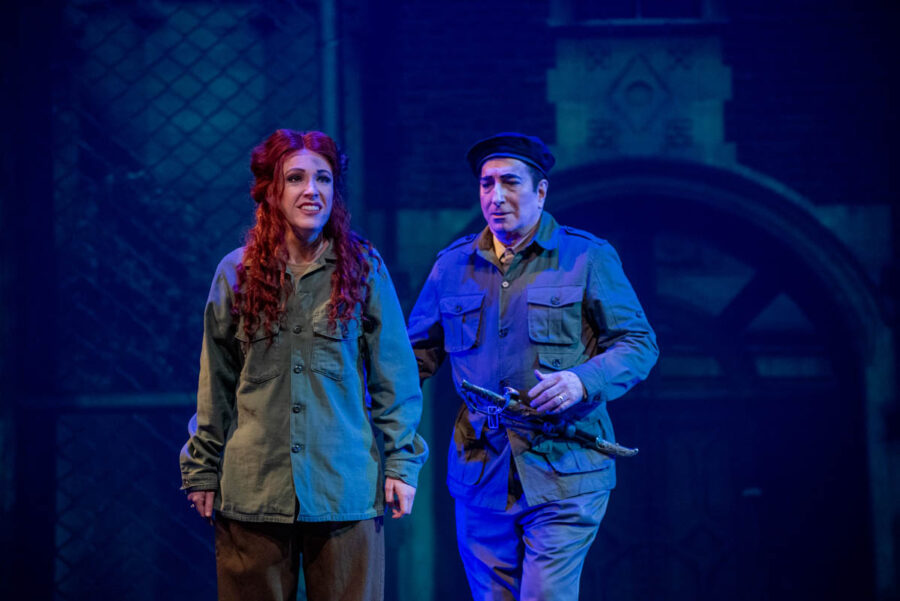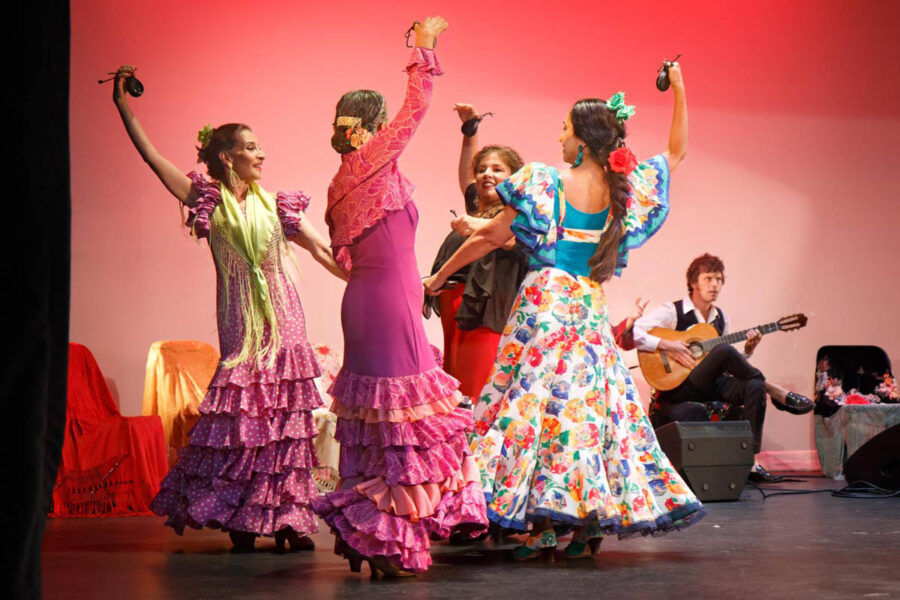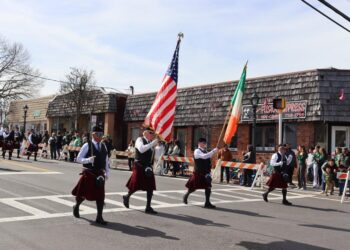
In an exclusive interview with Hamptons.com, International Soprano Opera Star Ashley Galvani Bell was forthcoming about her career and the September 13th Bay Street Theater presentation of Divaria Opera: We Are Carmen Somos Carmen.
Talk to us about the show. Why was this specific opera selected?
This year is the 150th anniversary of the premiere of the world-famous Opera Carmen and the 150th anniversary of the death of Carmen’s composer, Georges Bizet. To celebrate this momentous occasion, we decided to create a show featuring some of Carmen’s most celebrated works. Ms. Gomez, the mezzo soprano artist visiting from Spain, is at the forefront of her field, and in fact, Carmen is her Signature role. Audiences are in for a real treat!
But to accompany some of the musical highlights from Carmen, which will sound familiar to many people, with this show, we also decided to introduce audiences to an art form that I am very passionate about and that is not as well known in New York: Spanish zarzuela.
Zarzuela, for those of you unfamiliar with it, is a Spanish-language blend of theatre, opera and dance which began in the 1650s and has covered more than 300 years of history from Spain all the way to Latin America. Zarzuelas encompass a huge range of styles spanning from urban and folk-dance rhythm to operatic arias to duets.
This production will feature several zarzuela musical selections in Spanish, including one piece from a Cuban zarzuela. But what is also especially unique about this production is that for the first time, we will feature Spanish dance in partnership with the fantastic Sol y Sombra Dance Company! There will be an ensemble piece performed by the company as well as solo pieces by a talented dancer from Spain, Paloma de Vega.
We are very excited for audiences to have the chance to be exposed to a new and beautiful art form, and also think it is a great way to kick off Hispanic Heritage month! ¡ Esperemos que muchos hispanohablantes puedan venir y disfrutar!
And of course, any opera wouldn’t be the same without the music, and audiences will be treated to musical excellence in the hands of our brilliant conductor/musical director, young Spanish prodigy Sergio Martinez, and the outstanding New Asia Chamber Music Society as our string quartet.
What about last year?
This last year, I have been fortunate to have many performance opportunities. In fact, in February/march, in the span of just a little over a month, I sang in six different projects including Lux Aeterna in Boston, Madame Butterfly in Palm Desert, a dance opera with Opera Hispánica directed by Richard Stafford where I played a form of artificial intelligence, my debut in Denmark with Operaen I Midten as the title role in Pedro Halffter’s Klara, and my debut in one of my dream roles, Leonora in Verdi’s Il Trovatore, which I was lucky to sing with a fantastic cast with Boheme Opera New Jersey! It’s been a whirlwind, but I am, as always, incredibly grateful for the performance opportunities that have come my way.
What inspired you to enter the world of opera?
I can’t imagine a life without music, and especially not without singing. According to my parents, I was singing before I could talk, and I have loved it ever since.
In my private life, I’ve always been more of a reserved person but felt that singing was a way that I could connect with people. When I step on stage, I feel more alive and able to connect with people through music.
I felt especially drawn to Opera because of the emotional power of the stories and music that have, in many cases, transcended centuries and continue to affect people.
I would say the pivotal turning point in my decision to become an opera singer was at 16 years old when I attended an opera festival in Chiari, Italy, as the youngest of singers who were mostly in college, graduate school, and beyond. This was an absolutely amazing experience, and I decided then and there that Opera was what I wanted to do.
In Italy, where I was exposed to Italian classes for the first time, I also furthered my burgeoning passion for languages as a window into other cultures and realized that Opera was a way in which I could marry both of these passions. I currently speak and work in French, Spanish, German, Italian, and English.
I look forward to discovering new places, new languages, and new roles, as singing is the best way I have found to rouse people’s emotions and connect with them on a deeper level.
Tell us about Divaria Productions?
The genesis for my not-for-profit Opera company, Divaria Productions, was when my grandmother was in hospice and suffering from dementia in a memory care facility. My family and I spent a lot of time visiting her at the 80th Street residence. In watching the response to concerts offered by others and to my own performances there, I experienced first-hand the role that music played in inspiring a group of people with dementia to be able to transcend their space, go back to their childhoods, and see a whole new world.

I was inspired to create an opera company to help make opera accessible to other people, especially those who had had no exposure to it before or those who, like those at the 80th St. residence and others with health challenges, might not be able to physically attend performances.
I wanted that concept of accessibility to be baked into the business model, and to this end, we have performed at places like Hope Lodge of the American Cancer Society for cancer patients and NYU Hospital for stroke victims. In fact, during the pandemic, I was able to take that same experience of bringing music to those who can’t access it and migrate it to the virtual platform. We had no physical spaces to perform, and people couldn’t leave their homes, so we ultimately had to create a visual media experience that was shot wholly during COVID and have an available link for those to engage with it. We created a documentary film called Rival Queens, telling the story of the relationship between Mary Queen of Scots and Queen Elizabeth by blending historical letters with music from Donizetti’s Maria Stuarda, allowing people to experience opera and film in a time when they couldn’t leave the comfort of their homes. We were fortunate to be able to reach a lot of people with this work and win awards in more than 20 international film festivals.
In the pandemic, we also offered online classes to people across the United States about the history of opera. One such class was expressly tailored for the Harvard Program of Refugee Trauma about the relationship of opera and human rights and was shared with mental health professionals from across the world who work with refugees in more than 140 countries.
Other methods of expanding opera’s accessibility have included blending opera with other mediums such as theatre (Othello: The Opera & Play Enmeshed blending Shakespeare’s Othello with actors and Verdi’s Othello with singers), blending Opera with dance (a production of Pedro Halffter’s Opera Klara about artificial intelligence) and blending live performance with education (an original production entitled the Shakespeare Riots which recounted the story of a watershed moment in opera history).
But most of all, we are incredibly grateful to Bay Street Theatre for having us back for the 11th consecutive year since our first opera production of Traviata at the theatre in 2015! The team at Bay Street is incredibly supportive and enthusiastic, and it has been a joy to work with them as well as to perform in front of welcoming and very receptive East End audiences.












